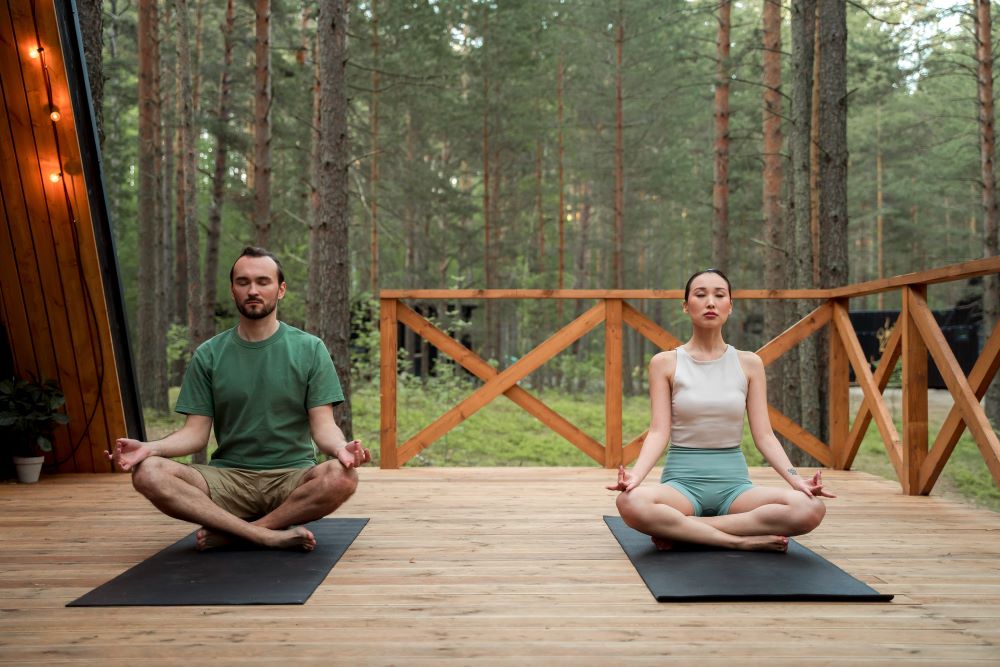In this article, we will explore various strategies and techniques that can help you relax and find peace amidst the chaos.
Top 10 Ways to Relax
- Creating a Calm Environment
- Mindful Breathing and Meditation
- Engaging in Mindful Activities
- Disconnecting from Technology
- Nurturing Self-Care Practices
- Embracing Nature
- Prioritizing Sleep
- Seeking Social Support
- Practicing Time Management
- Embracing Mindful Eating
Creating a Calm Environment
One of the first steps to relaxing is setting the stage for tranquility. Your surroundings can greatly impact your ability to unwind. Consider creating a dedicated space in your home where you can retreat to find solace. This could be a cozy corner with soft lighting, comfortable cushions, and calming scents. By curating a serene environment, you can instantly put yourself in a more relaxed state of mind.
Mindful Breathing and Meditation
Deep breathing exercises and meditation techniques have long been associated with relaxation. Take a few minutes each day to focus on your breath. Inhale deeply through your nose, hold it for a few seconds, and then exhale slowly through your mouth. This simple practice can help calm your mind, reduce stress, and induce a sense of tranquility.
Meditation is another powerful tool for relaxation. Find a quiet place where you can sit comfortably and close your eyes. Focus your attention on your breath or choose a specific object or mantra to concentrate on. As your mind begins to wander, gently bring your attention back to your chosen focal point. Regular meditation practice can improve your ability to relax, increase self-awareness, and enhance overall well-being.
Engaging in Mindful Activities
Engaging in activities that promote mindfulness can be incredibly relaxing. Consider trying yoga, tai chi, or Pilates. These practices combine movement, breathing, and meditation to create a harmonious mind-body connection. Not only do they help release physical tension, but they also cultivate mental clarity and promote a sense of inner peace.
Other mindful activities include gardening, painting, or playing a musical instrument. These creative pursuits allow you to focus your attention on the present moment, enabling you to let go of worries and stress. Find an activity that resonates with you and make time for it regularly to experience the full benefits of relaxation.
Disconnecting from Technology
In today’s digital age, we are constantly bombarded with notifications and distractions from our electronic devices. While technology has undoubtedly brought convenience, it can also hinder our ability to relax. Set boundaries and allocate specific times during the day when you disconnect from your gadgets. Engage in tech-free activities like reading a book, going for a walk, or spending quality time with loved ones. By limiting your screen time, you can create space for relaxation and reconnect with the present moment.
Nurturing Self-Care Practices
Self-care is crucial for maintaining balance and finding relaxation. Dedicate time each day to prioritize activities that bring you joy and nourish your well-being. This could include taking a warm bath, practicing skincare rituals, journaling, or enjoying a hobby. By actively engaging in self-care, you send a powerful message to yourself that your mental and physical health matter. Remember, taking care of yourself is not selfish but rather an essential aspect of leading a fulfilling life.
Embracing Nature
Spending time in nature can have a profound impact on our well-being. Take regular walks in the park, go hiking, or simply sit by a nearby lake or beach. The sights, sounds, and smells of the natural world can help calm the mind and reduce stress. Research suggests that spending time in nature can lower blood pressure, improve mood, and enhance cognitive function. So, make it a habit to venture into natural settings and reconnect with the beauty of the world around you.
Prioritizing Sleep
Adequate sleep is essential for relaxation and overall health. Create a bedtime routine that promotes quality sleep. Establish a consistent sleep schedule, avoid stimulating activities before bed, and create a comfortable sleep environment. Consider incorporating relaxation techniques such as gentle stretching, reading a book, or listening to calming music before sleep. By prioritizing restful sleep, you give your body and mind the opportunity to recharge and rejuvenate.
Seeking Social Support
Spending time with loved ones and nurturing social connections can be a great source of relaxation. Engage in meaningful conversations, share laughter, and participate in activities together. Surrounding yourself with positive, supportive individuals can provide a sense of belonging and reduce stress. Plan outings with friends or family members, join social clubs or organizations, and make an effort to maintain healthy relationships. These interactions can serve as a powerful antidote to the pressures of daily life.
Practicing Time Management
Feeling overwhelmed and constantly rushing can hinder relaxation. Take control of your time by practicing effective time management. Prioritize tasks, set realistic goals, and learn to say no to unnecessary commitments. By organizing your schedule and allocating time for relaxation, you create a sense of balance and reduce stress. Remember, it’s important to strike a healthy equilibrium between work, leisure, and rest.
Embracing Mindful Eating
The way we nourish our bodies can significantly impact our ability to relax. Practice mindful eating by savoring each bite, paying attention to flavors, textures, and smells. Avoid rushing through meals and instead create a calm and peaceful eating environment. Choose whole, nutritious foods that support your well-being. Hydrate yourself adequately and limit the intake of caffeine and alcohol, as they can disrupt sleep patterns and increase anxiety. A balanced diet not only benefits your physical health but also promotes relaxation and mental clarity.
Seeking Professional Help
If stress and anxiety persist despite your efforts to relax, don’t hesitate to seek professional help. A mental health professional can provide guidance, support, and tailored strategies to manage stress and find relaxation. Therapy, counseling, or other interventions may be beneficial in helping you navigate the challenges that prevent you from fully relaxing. Remember, asking for help is a sign of strength and self-care.
